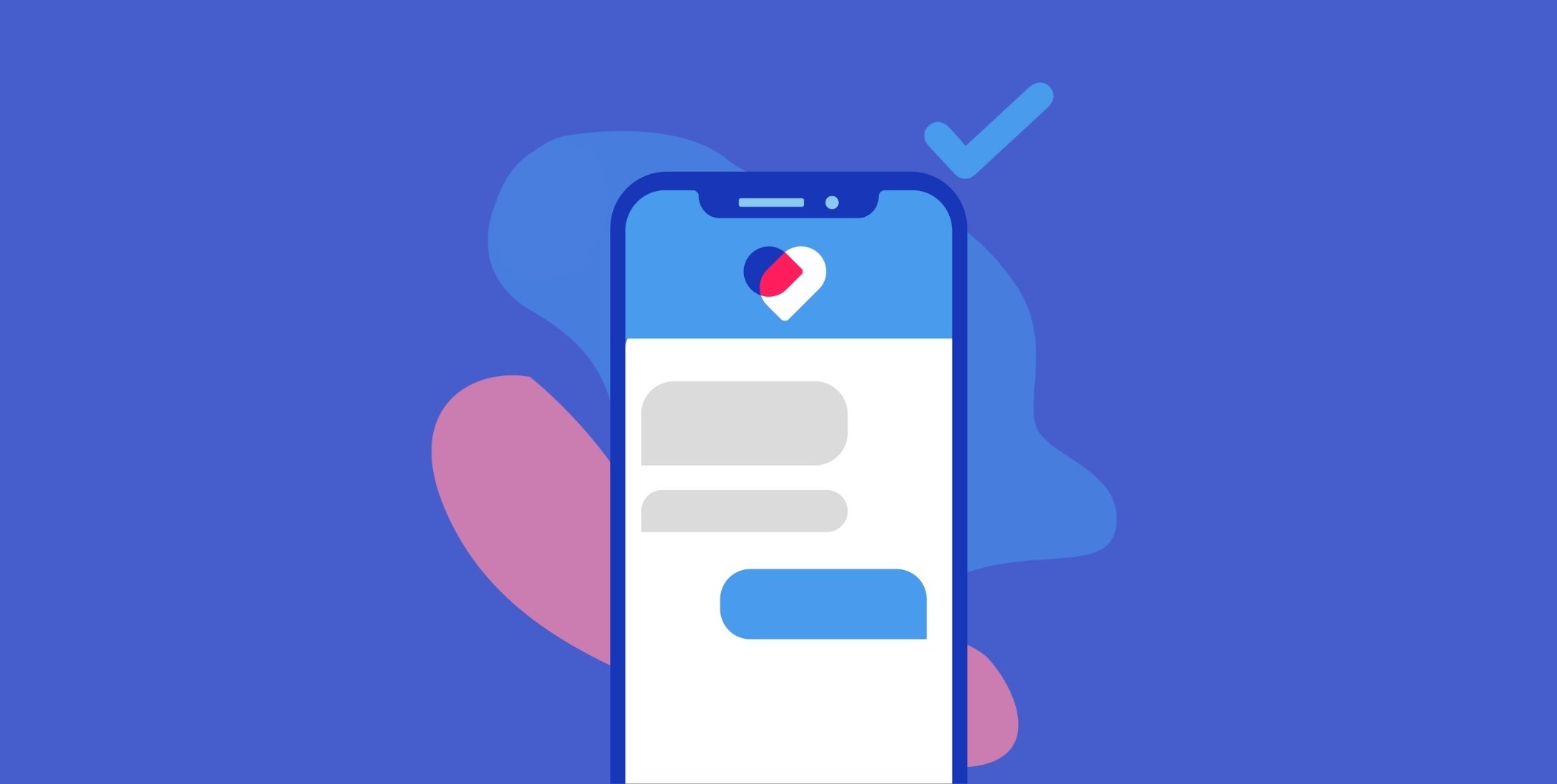Nov 5, 2025
Best Practices for Securely Sharing Patient Health Information
Aug 20, 2024 - Blog
Securely sharing patient health information (PHI) is important to maintaining patient confidentiality, complying with regulatory standards like HIPAA, and fostering trust between healthcare providers and patients.
This blog explores essential strategies and guidelines for securely sharing patient health information, offering insights into how healthcare providers can enhance PHI security and compliance through best practices.
What is Patient Health Information (PHI)?
Patient Health Information (PHI) encompasses any information related to a patient's health status, medical treatment, or payment history that can identify an individual. This includes but is not limited to medical records, test results, prescription history, and demographic details such as name, address, and insurance information.
PHI is critical for delivering quality healthcare but must be handled with strict confidentiality to protect patient privacy and comply with regulatory standards.
Why is secure sharing of PHI crucial in healthcare?
Secure sharing of PHI is crucial in healthcare to maintain patient trust, protect sensitive medical information from unauthorized access, and adhere to legal requirements like HIPAA.
By securely sharing PHI, healthcare providers ensure that patient data remains confidential throughout its lifecycle, from collection and storage to transmission and disposal.
This safeguards against breaches that could lead to identity theft, medical fraud, or harm to patient well-being, reinforcing the integrity of healthcare services.
Understanding HIPAA compliance
HIPAA (Health Insurance Portability and Accountability Act) sets national standards to safeguard PHI and ensure its secure handling by healthcare providers and organizations.
Related article: The Ultimate Guide To HIPAA Compliance
Compliance with HIPAA involves implementing robust administrative, physical, and technical safeguards to protect PHI's confidentiality, integrity, and availability.
This framework enhances patient privacy and fosters a secure environment for healthcare operations, mitigating risks associated with data breaches and unauthorized disclosures.
How does HIPAA protect patient information?
HIPAA protects patient information by establishing stringent guidelines and regulations that healthcare providers must follow. These include restrictions on who can access PHI, requirements for encryption during transmission, protocols for secure storage and disposal of data, and measures to detect and respond to security incidents promptly.
By enforcing these standards, HIPAA aims to prevent unauthorized access to PHI, ensure patient confidentiality, and uphold the ethical responsibilities of healthcare providers in managing sensitive medical data.
How does HIPAA define PHI?
HIPAA defines PHI as any individually identifiable health information held or transmitted by a covered entity or its business associates. This information can exist in various formats, including electronic, paper, or oral forms.
PHI includes details about an individual's past, present, or future physical or mental health conditions and any healthcare services provided to them.
This broad definition underscores the importance of protecting all forms of patient data to maintain privacy and comply with HIPAA regulations.
What role do patient rights play in the secure sharing of PHI under HIPAA?
Patient rights play a critical role in the secure sharing of PHI under HIPAA. These rights ensure that patients have control over their medical information, including the right to access their records, amend inaccuracies, and restrict disclosures.
HIPAA mandates that healthcare providers respect these rights, empowering patients to make informed decisions about how and with whom their PHI is shared.
By upholding patient rights, healthcare organizations comply with legal requirements and foster trust and confidentiality, essential for maintaining the integrity of healthcare services.
What are the penalties for non-compliance with HIPAA?
Non-compliance with HIPAA can result in significant penalties, ranging from fines of up to $50,000 per violation to criminal charges that may lead to imprisonment. For repeated violations, civil penalties can extend up to $1.5 million per year.
These penalties underscore the importance of adhering to HIPAA regulations to protect patient privacy and avoid legal repercussions.
3 Best practices for securely sharing patient health information
Now that we've clarified what Patient Health Information (PHI) is and its critical role in regulatory compliance like HIPAA, let's delve into the best practices for securely sharing patient health information.
1. Ensure PHI is securely stored
Healthcare organizations should adopt platforms that utilize encryption methods such as AES-256 for electronic PHI and ensure physical security measures for paper records. Implementing access controls and regular audits further safeguards stored PHI against unauthorized access.
What encryption methods are recommended for PHI?
AES-256 encryption is widely recommended for securing electronic PHI (ePHI). This standard ensures data is encrypted at rest and in transit, providing robust protection against unauthorized access and breaches.
Related article: 3 Best Practices for Virtual Care
2. Know the guidelines for accessing and transmitting PHI
Healthcare providers should follow guidelines that include using secure communication channels like encrypted emails or secure messaging platforms.
They should also verify the recipient's identity before sharing PHI and avoid transmitting PHI over unsecured networks or devices.
How can healthcare providers ensure the secure transmission of PHI?
Providers should use encrypted channels for the electronic transmission of PHI. Implementing secure email gateways and training staff on secure communication practices are essential to prevent unauthorized access during transmission.
3. Implement access controls to protect PHI
Organizations can enforce least privilege access principles, ensuring that only authorized personnel have access to PHI based on their roles.
This includes using role-based access controls (RBAC) and regularly reviewing access logs to detect and mitigate unauthorized access attempts.
How can organizations implement effective access management?
Effective access management involves creating and enforcing policies that define who can access PHI, under what circumstances, and for what purposes. This includes conducting regular audits, training staff on access protocols, and promptly revoking access for employees who no longer require it.
By implementing these measures, organizations can reduce the risk of unauthorized data breaches and ensure compliance with HIPAA regulations.
Technologies and tools for secure PHI sharing
Technology is reshaping the healthcare landscape by introducing innovative solutions for securely sharing patient health information (PHI). Modern advancements include sophisticated encryption methods, secure storage solutions, and enhanced communication platforms.
These technologies streamline healthcare workflows and ensure sensitive PHI remains confidential and compliant with regulatory standards like HIPAA.
By leveraging these tools, healthcare providers can enhance patient care coordination and maintain patient data integrity across various digital platforms.
What are secure messaging platforms for healthcare?
Secure messaging platforms designed for healthcare facilitate the secure exchange of patient information among healthcare professionals. These platforms prioritize confidentiality by employing encryption protocols that protect data in transit and at rest.
Related article: Everything You Need to Know About Secure Messaging in Healthcare
They often integrate authentication mechanisms and audit trails to ensure that only authorized personnel can access and track sensitive information.
These platforms help healthcare organizations comply with HIPAA regulations by adhering to stringent security standards, enhancing communication efficiency and patient care coordination.
How do these platforms ensure HIPAA compliance?
Secure messaging platforms ensure HIPAA compliance by implementing multiple layers of security measures. These include end-to-end encryption to protect data from interception, secure authentication methods like two-factor authentication (2FA) to verify user identities, and access controls that restrict data access to authorized personnel only.
Additionally, these platforms maintain audit trails that log all interactions with PHI, facilitating compliance monitoring and incident response. These platforms enable healthcare providers to confidently share sensitive patient information while safeguarding patient confidentiality.
How can healthcare staff be trained on PHI handling?
Healthcare staff can be trained on PHI handling through structured educational programs that cover legal requirements, privacy principles, and secure practices for accessing, storing, and transmitting PHI.
Training sessions should include practical scenarios, role-specific guidelines, and assessments to ensure staff understand and adhere to PHI security protocols.
What should training programs cover regarding PHI security?
Training programs on PHI security should cover HIPAA regulations, including the definition of PHI, permissible uses and disclosures, patient consent requirements, and penalties for non-compliance.
Staff should learn about encryption methods, secure communication practices, and maintaining confidentiality in all patient health information interactions.
Hands-on training with secure tools and simulated scenarios can reinforce these principles effectively.
Key takeaways for securely sharing patient health information
Technology transforms healthcare by introducing advanced solutions for securely sharing patient health information (PHI). These innovations include robust encryption methods, secure storage solutions, and enhanced communication platforms.
These tools enhance patient care coordination and strengthen data security across digital platforms, safeguarding sensitive information against unauthorized access and breaches.
Key takeaways:
- Advanced technology in healthcare enables secure sharing of patient health information (PHI).
- Innovations such as encryption, secure storage, and enhanced communication platforms are essential.
- Leveraging these tools ensures PHI confidentiality and HIPAA compliance.
- Improved data security across digital platforms helps prevent unauthorized access and breaches.
- Enhanced patient care coordination is a significant benefit of these technological solutions.
Enhance your PHI security practices today
Securing the sharing of patient health information (PHI) is not just a regulatory requirement but a fundamental responsibility for healthcare providers. By adhering to best practices and leveraging advanced technologies, healthcare organizations can ensure that PHI remains protected throughout its lifecycle.
These efforts are crucial for maintaining patient trust, upholding privacy standards, and safeguarding sensitive data against breaches. As healthcare evolves, staying informed and proactive about PHI security is essential for delivering high-quality, compliant care.
Start enhancing your PHI security practices today to protect your patients and your organization from potential risks.
About the Author:

Head of Marketing at Celo
Remy is a passionate and creative marketer at Celo Health, a leading company in the healthcare technology sector. As Head of Marketing, Remy plays a vital role in developing and implementing marketing strategies that highlight Celo Health's cutting-edge solutions and inform a diverse audience about the importance of secure technology in healthcare.


